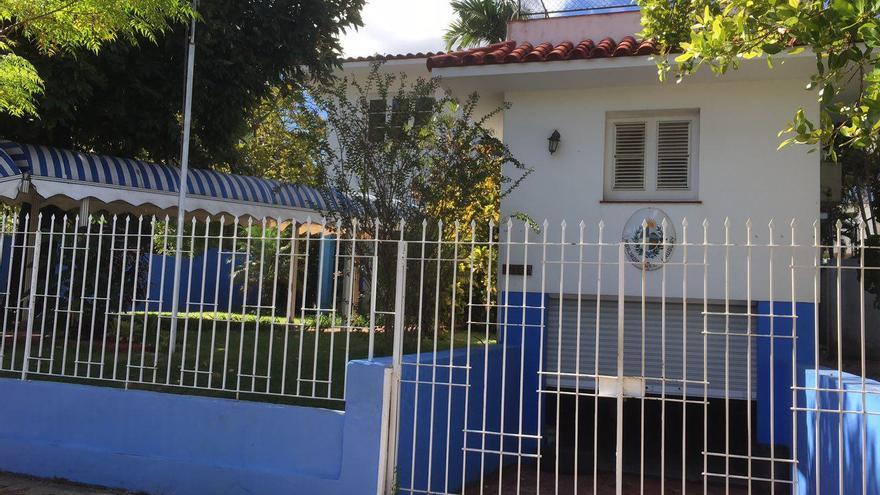
![]() 14ymedio, Havana, 6 November 2018 — Dozens of people approached the Uruguayan consulate in Havana on Tuesday to ask about the visas for work, education, family reunification and emergencies, which the government of that Latin American country has said it will begin to grant to residents on the island. The increase in the number of migrants in Uruguay has led the authorities to reorganize the reception of migrants and has positively affected Cubans.
14ymedio, Havana, 6 November 2018 — Dozens of people approached the Uruguayan consulate in Havana on Tuesday to ask about the visas for work, education, family reunification and emergencies, which the government of that Latin American country has said it will begin to grant to residents on the island. The increase in the number of migrants in Uruguay has led the authorities to reorganize the reception of migrants and has positively affected Cubans.
The information about the new visas is still brief because they will only be valid beginning in 14 days, when the decree that President Tabaré Vázquez signed on October 29 comes into effect. Once the new procedures go into operation, Cubans will be able to complete the visa process from the Island.
In the Uruguayan consular offices, the visa interviews for the coming four weeks will be scheduled on first working day of the month.
“On December 3, interview appointments will be handed out and we hope that many people will come,” said one of the consulate’s security guards. “Today many have come to ask about it but we are not dealing with anyone who did not get an appointment at the beginning of November and we have no new details about the visas that have been announced.”
Carlos Manuel Ávila, 28, traveled all morning from Cárdenas in Matanzas to “be in front of the consulate at dawn,” he told 14ymedio. “This is an opportunity that I do not want to lose because it is a small, quiet country, where they speak Spanish and one can prosper,” said the young man sitting on a narrow wall next to the house in Miramar where visas are processed.

Avila has tried twice in vain to reach the US coast on a raft, but a few months ago he decided to “bet on legal migration to a country in Latin America.” His older brother is one of the 5,000 Cubans who have gone to settle in Uruguay.
“First, he thought it would only be for a while, until he could continue to the United States,” says Ávila, but “over time he has taken a liking to Uruguay and does not want to leave.” Now, the brother works as a car mechanic in a workshop in Montevideo and “is raising money to bring his wife and children.”
With the repeal in January 2017 of of the wet foot/dry foot policy that facilitated residence procedures for Cubans arriving on land in the United States, emigration from the island has been reoriented to other countries, such as Chile, Uruguay and Brazil.
The work visa that will begin to be offered at the Havana consulate is only given to those who present a contract with a company duly registered in Uruguay. “That is not a big obstacle because there is already a good community of Cubans there and some have been entered the labor market,” says María Elena, a 44-year-old interior designer who was waiting Tuesday for the forms to obtain a work visa.
“My husband has been there for eight months and is already working as a civil engineer, now the company where he is hired is going to help me get there to work with them,” she says. The couple will leave two children in Havana “waiting for our economic situation to allow reunification.”
The designer is pleased that the new requirement to show a work contract with a Uruguayan company repeals the previous one that required showing a bank account on the island with a deposit of about 5,000 CUC. “Before you had to juggle to get that money but now all the energy has to be used to find a contract.”
Among the dozens of applicants who have arrived at the consulate since the announcement, the majority inquire about an employment contract but there is also no lack of young people interested in pursuing studies in the country.
For Cubans who are already in Uruguay, the situation has also improved since November 1, when they began to be able to deliver proof of arrival at the Chancellery, which they can present to employers to work. Previously, the Ministry of Labor fined companies that hired employees without an identity card.
_____________________
The 14ymedio team is committed to serious journalism that reflects the reality of deep Cuba. Thank you for joining us on this long road. We invite you to continue supporting us, but this time by becoming a member of 14ymedio. Together we can continue to transform journalism in Cuba.
